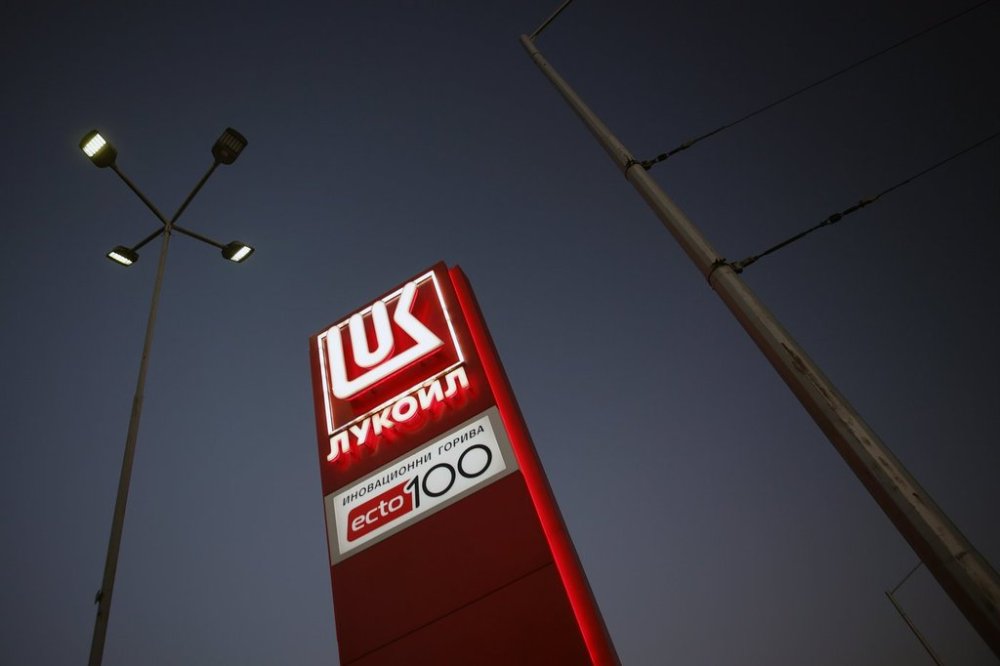Bulgaria moves to prevent shutdown of its only oil refinery ahead of US sanctions
Advertisement
Read this article for free:
or
Already have an account? Log in here »
To continue reading, please subscribe:
Monthly Digital Subscription
$0 for the first 4 weeks*
- Enjoy unlimited reading on winnipegfreepress.com
- Read the E-Edition, our digital replica newspaper
- Access News Break, our award-winning app
- Play interactive puzzles
*No charge for 4 weeks then price increases to the regular rate of $19.00 plus GST every four weeks. Offer available to new and qualified returning subscribers only. Cancel any time.
Monthly Digital Subscription
$4.75/week*
- Enjoy unlimited reading on winnipegfreepress.com
- Read the E-Edition, our digital replica newspaper
- Access News Break, our award-winning app
- Play interactive puzzles
*Billed as $19 plus GST every four weeks. Cancel any time.
To continue reading, please subscribe:
Add Free Press access to your Brandon Sun subscription for only an additional
$1 for the first 4 weeks*
*Your next subscription payment will increase by $1.00 and you will be charged $16.99 plus GST for four weeks. After four weeks, your payment will increase to $23.99 plus GST every four weeks.
Read unlimited articles for free today:
or
Already have an account? Log in here »
SOFIA, Bulgaria (AP) — Bulgaria is racing to prevent the shutdown of its only oil refinery before U.S. sanctions on the Russian owner take effect later this month.
Parliament in Sofia approved legal changes that grant additional state authority to a government-appointed manager of the Lukoil-owned Burgas refinery on the Black Sea coast.
The move came after a top international commodities trader dropped plans to purchase Lukoil’s international assets, as the company rejected U.S. government allegations of being “the Kremlin’s puppet.”

Lukoil said it was selling its international assets in response to U.S. sanctions aimed at pushing Russia to agree to a ceasefire in its war against Ukraine. The company has stakes in oil and gas projects in 11 countries, including the Burgas refinery, as well as gas stations in many countries.
Under the new amendments, the manager is granted significant operational control of the refinery, including the right to sell its shares. Opposition lawmakers criticized the changes, saying they could prompt legal action against Bulgaria.
“This person will be granted such extraordinary powers that, in the end, Lukoil will sue Bulgaria — and the money will end up in Russia,” said Ivaylo Mirchev, leader of the Democratic Bulgaria alliance.
The ruling coalition introduced the changes, arguing that the U.S. sanctions, scheduled to take effect on Nov. 21, “will effectively lead to the shutdown of the refinery’s operations due to the refusal of all counterparties to make payments to Lukoil-owned companies.”
In 1999, the Russian oil giant Lukoil acquired the Neftochim plant on the Black Sea. It is the largest oil refinery in the Balkans. Recent estimates by experts set the value of the refinery at 1.3 billion euros ($1.5 billion).
The Lukoil-Neftochim refinery is Bulgaria’s largest company, playing a significant role in the country’s economy. In 2024, it had a turnover of about 4.7 billion euros ($5.4 billion). Its nationwide network of oil depots and gas stations, as well as its supply of ships and aircraft, gives it near-monopoly status.
Last week, Bulgaria imposed temporary restrictions on the export of petroleum products, including those destined for other European Union members, to ensure sufficient domestic supplies ahead of new U.S. sanctions on Russian energy. The ban covers exports of petroleum products, including diesel and aviation fuel.

